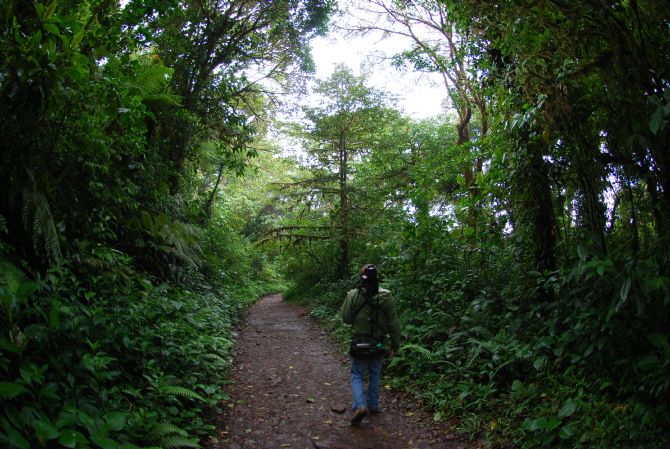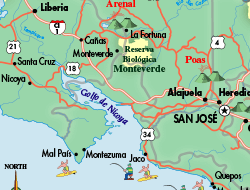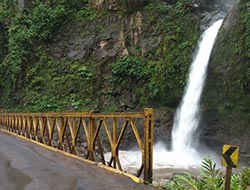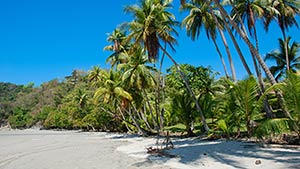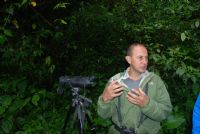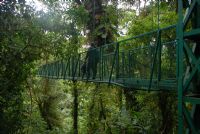Ecotourism in Costa Rica
Guide looking for animals in the Monteverde Cloud Forest Reserve
Ecotourism has been able to actively contribute to the conservation of the cultural heritage and the natural environment of a country.
It is one of the most effective means by which we humans can save nature from any potential harm.
Ecotourism throughout Costa Rica
Ensuring excellent ecotourism, Costa Rica has devoted an estimated 26% of its land to national parks, wildlife reserves and protected lands.
For a tiny country of just 19,730 sq. miles (51,100 sq. km), it has a lot to offer. There is so much to see and do in Costa Rica.
Sight various exotic birds as you hike through the verdant rainforests, get fascinated by amazing plethora of wildlife and marine species, relax at the spectacular beaches or surround yourself with adventure.
Whether you are a nature lover or an adrenaline seeker, there is so much to do!
Costa Rica’s tourism industry has developed as environmentally sound and lucrative, protecting the vast natural treasures of the country while bringing economic opportunities to the rural areas. The far reaching environmental and economic benefits of ecotourism cannot be denied.
Costa Rica has been able to attain sustainable development and protect the unspoiled landscapes from the dangers of destructive agricultural practices.
Sustainable Ecotourism
Through successful ecotourism Costa Rica has been able to prove that conservation and economic growth goes hand in hand.
The growth potential and environmental benefits of ecotourism keeps it from becoming a burden on the developing countries.
The investment in ecotourism is for a worthwhile cause and provides positive development for the environment and the country.
Manuel Antonio National Park and Monteverde Cloud Forest Reserve are viewed as models for ecotourism and sustainable development. These parks offer critical habitat to various plant and animal species.
The major reason of ecotourism’s success in Costa Rica goes to the active participation of the private sector, exceptional biodiversity and the interaction between the comprehensive protected areas network.
The international and national NGOs, local businesses, natives and government organizations also play a major part in the success of the ecotourism programs.
Sound ecotourism practices in Costa Rica have helped minimize adverse effects of traditional tourism on the natural environment, created awareness, provided financial benefits to the local communities and have facilitated in building the environment.
Responsible tourism has also allowed the country to respond effectively to the growing demands of the tourism industry and enhance the cultural integrity of the local community.
7 Days / 6 Nights
Starting at $978 per person
10 Days / 9 Nights
Starting at $1,440 per person




